People
Project Directors
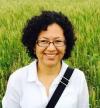 Carmen Ugarte: Research Specialist in Sustainable Agriculture and Soil Biology. Department of Natural Resources and Environmental Sciences. University of Illinois Urbana-Champaign. Dr. Ugarte's research focuses on understanding the effects of soil management practices on soil quality and function. She is especially interested in studying the dynamics of soil food webs and their influence on soil ecosystem services such as nutrient cycling, carbon storage, and the regulation of population densities of deleterious soil organisms. Our ability to gain insight on these relationships and processes is fundamental to improving soil management and ensuring sustainability of our natural resources. Her work includes basic and applied research at different scales (e.g., experimental and replicated trials, on-farm research) at the regional and national levels in agronomic and natural systems.
Carmen Ugarte: Research Specialist in Sustainable Agriculture and Soil Biology. Department of Natural Resources and Environmental Sciences. University of Illinois Urbana-Champaign. Dr. Ugarte's research focuses on understanding the effects of soil management practices on soil quality and function. She is especially interested in studying the dynamics of soil food webs and their influence on soil ecosystem services such as nutrient cycling, carbon storage, and the regulation of population densities of deleterious soil organisms. Our ability to gain insight on these relationships and processes is fundamental to improving soil management and ensuring sustainability of our natural resources. Her work includes basic and applied research at different scales (e.g., experimental and replicated trials, on-farm research) at the regional and national levels in agronomic and natural systems.
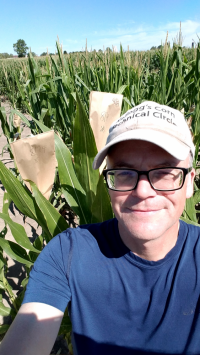 Martin Bohn: Associate Professor of Maize Breeding and Genetics. Department of Crop Sciences. University of Illinois Urbana-Champaign. Martin grew up in the "Ruhrgebiet", the industrial rustbelt of West Germany. He had no ties to agriculture. However, he studied agronomy at the Universities of Bonn and Hohenheim in Germany (1985-1992), because of his interest in biology, the applied sciences, and motivated by the growing ecological movement in Europe. Martin spent a year working on a very diverse dairy family farm, growing wheat, barley, rye, corn, hay, and vegetables and learned how to milk cows and help them birth their calves (10/1987-9/1988). He completed his MSc at the University of Hohenheim and continued his studies with a PhD. in plant breeding and genetics (1992-1997). For his thesis research, Martin spent two years in Mexico, working at the "International Center for Wheat and Maize Improvement" (CIMMYT) (1992-1994). After his habilitation (i.e., only with this highest academic degree it is possible to become a professor in Germany) (1997-2002), Martin received the call to take over the faculty position in maize breeding and genetics at the University of Illinois at Urbana-Champaign (2002-present). Martin's maize breeding program focuses on developing improved maize germplasm that contributes to an economically efficient and sustainable maize production under restricted and “organic” growing conditions. He develops and employs innovative high-throughput phenotyping tools, quantitative genetic theory, and deep genomic information to study the genetic basis of biotic and abiotic stress responses, root development, and grain processing in maize.
Martin Bohn: Associate Professor of Maize Breeding and Genetics. Department of Crop Sciences. University of Illinois Urbana-Champaign. Martin grew up in the "Ruhrgebiet", the industrial rustbelt of West Germany. He had no ties to agriculture. However, he studied agronomy at the Universities of Bonn and Hohenheim in Germany (1985-1992), because of his interest in biology, the applied sciences, and motivated by the growing ecological movement in Europe. Martin spent a year working on a very diverse dairy family farm, growing wheat, barley, rye, corn, hay, and vegetables and learned how to milk cows and help them birth their calves (10/1987-9/1988). He completed his MSc at the University of Hohenheim and continued his studies with a PhD. in plant breeding and genetics (1992-1997). For his thesis research, Martin spent two years in Mexico, working at the "International Center for Wheat and Maize Improvement" (CIMMYT) (1992-1994). After his habilitation (i.e., only with this highest academic degree it is possible to become a professor in Germany) (1997-2002), Martin received the call to take over the faculty position in maize breeding and genetics at the University of Illinois at Urbana-Champaign (2002-present). Martin's maize breeding program focuses on developing improved maize germplasm that contributes to an economically efficient and sustainable maize production under restricted and “organic” growing conditions. He develops and employs innovative high-throughput phenotyping tools, quantitative genetic theory, and deep genomic information to study the genetic basis of biotic and abiotic stress responses, root development, and grain processing in maize.
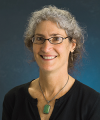 Michelle Wander: Professor of Soil Fertility and Ecology. Agroecology and Sustainable Agriculture Program Director. University of Illinois Urbana-Champaign. Dr. Wander works with farmers, educators, and policymakers to quantify the benefits of diversified and organic production, precision conservation and woody perennial polycultures, and determine how standards, voluntary marketing, and decision support tools can encourage soil stewardship. She studies the influence of management (tillage and cover crops, perennials, organic farming systems; crop rotation and fertilization) on soils, organic matter and system performance with emphasis on nutrient cycling, plant-soil relations, roots and physical protection of organic matter, soil conservation and alternative methods for soil testing. Her work includes: the valuation of standards and metrics for ecosystem services and agricultural sustainability as well as work in urban and rural settings to advance nutrient testing, budgeting, life cycle analysis, conservation assessment tools used by the Natural Resources Conservation Service.
Michelle Wander: Professor of Soil Fertility and Ecology. Agroecology and Sustainable Agriculture Program Director. University of Illinois Urbana-Champaign. Dr. Wander works with farmers, educators, and policymakers to quantify the benefits of diversified and organic production, precision conservation and woody perennial polycultures, and determine how standards, voluntary marketing, and decision support tools can encourage soil stewardship. She studies the influence of management (tillage and cover crops, perennials, organic farming systems; crop rotation and fertilization) on soils, organic matter and system performance with emphasis on nutrient cycling, plant-soil relations, roots and physical protection of organic matter, soil conservation and alternative methods for soil testing. Her work includes: the valuation of standards and metrics for ecosystem services and agricultural sustainability as well as work in urban and rural settings to advance nutrient testing, budgeting, life cycle analysis, conservation assessment tools used by the Natural Resources Conservation Service.
Co-Project Directors and Key Personnel
 A Bryan Endres: A. Bryan Endres is a Professor of Food and Environmental Law in the Department of Agricultural and Consumer Economics at the University of Illinois. From 2010-2013 he was the Director of the European Union Center of Excellence and from 2013-2015 served as the Interim Associate Provost for International Affairs. He is a former chair of the Illinois State Bar Association’s Agricultural Law Section Council and was a member of the Board of Directors of the American Agricultural Law Association, as well as the American Bar Association’s Agricultural Management committee. Bryan earned a B.S in Mathematical Economics from the United States Military Academy at West Point, a M.S. in Administrative Management from the European Division of Bowie State University, and a J.D. from the University of Illinois. Prior to joining the University of Illinois, he served as a law clerk to Chief Judge H. Robert Mayer of the United States Court of Appeals for the Federal Circuit in Washington, D.C. and as an associate attorney in the Phoenix, Arizona office of Steptoe & Johnson LLP.
A Bryan Endres: A. Bryan Endres is a Professor of Food and Environmental Law in the Department of Agricultural and Consumer Economics at the University of Illinois. From 2010-2013 he was the Director of the European Union Center of Excellence and from 2013-2015 served as the Interim Associate Provost for International Affairs. He is a former chair of the Illinois State Bar Association’s Agricultural Law Section Council and was a member of the Board of Directors of the American Agricultural Law Association, as well as the American Bar Association’s Agricultural Management committee. Bryan earned a B.S in Mathematical Economics from the United States Military Academy at West Point, a M.S. in Administrative Management from the European Division of Bowie State University, and a J.D. from the University of Illinois. Prior to joining the University of Illinois, he served as a law clerk to Chief Judge H. Robert Mayer of the United States Court of Appeals for the Federal Circuit in Washington, D.C. and as an associate attorney in the Phoenix, Arizona office of Steptoe & Johnson LLP.
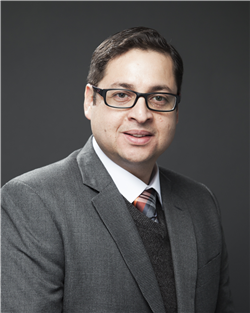 Juan Andrade: Juan E. Andrade is an assistant professor in global nutrition from the University of Illinois Urbana-Champaign, Urbana. He holds a B.Sc. in Agricultural Sciences from Zamorano University, Honduras, and a Ph.D. in Human Nutrition from Purdue University. Dr. Andrade's long-term goal is to develop sustainable strategies that can be used to deliver adequate nutrition, especially micronutrients, to residents of low-resource countries and thereby help to promote human health and economic development. His research interests are focused on innovative concepts for the fortification of foods, formulation of lipid-based nutrition supplements, point-of-care technologies for assessment of micronutrient deficiencies and fortified foods, functional food aid products, and service, experiential learning education programs. Dr. Andrade is an affiliated faculty in the Department of Food Science and Human Nutrition, the Division of Nutritional Sciences, the Center for Latin American and Caribbean Studies and the Food Security Initiative at Illinois. He is also a research affiliate at the Integrating Gender and Nutrition within Agricultural Extension Services (INGENAES) and the PI for the Human Nutrition Team at the Soy Innovation Lab, both USAID’s funded projects.
Juan Andrade: Juan E. Andrade is an assistant professor in global nutrition from the University of Illinois Urbana-Champaign, Urbana. He holds a B.Sc. in Agricultural Sciences from Zamorano University, Honduras, and a Ph.D. in Human Nutrition from Purdue University. Dr. Andrade's long-term goal is to develop sustainable strategies that can be used to deliver adequate nutrition, especially micronutrients, to residents of low-resource countries and thereby help to promote human health and economic development. His research interests are focused on innovative concepts for the fortification of foods, formulation of lipid-based nutrition supplements, point-of-care technologies for assessment of micronutrient deficiencies and fortified foods, functional food aid products, and service, experiential learning education programs. Dr. Andrade is an affiliated faculty in the Department of Food Science and Human Nutrition, the Division of Nutritional Sciences, the Center for Latin American and Caribbean Studies and the Food Security Initiative at Illinois. He is also a research affiliate at the Integrating Gender and Nutrition within Agricultural Extension Services (INGENAES) and the PI for the Human Nutrition Team at the Soy Innovation Lab, both USAID’s funded projects.
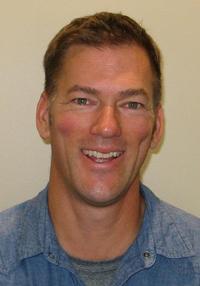 William Davison: Extension Educator, Small Farms and Local Food Systems Illinois: With his academic background in wildlife biology and 8 years as a diverse, small-scale organic farmer, Bill continually looks for ways to apply his insights into biology, ecology, and agriculture to drive change in the local food system in Illinois. Bill understands that public health concerns, the uncertain economy and changing climate patterns demand a significant change in how the nation produces food, and he believes Central Illinois could be ground zero for the transformation. Toward this end, Bill has founded the Grand Prairie Grain Guild to help farmers transition to organic food-grade grains. He has worked with a local government to plant the Refuge Food Forest, a 1-acre planting of organic fruits and nuts free for public consumption and enjoyment. Bill is also a founding member of the Artisan Grain Collaborative, Regenerate Illinois, and the IDEA Farm Network. Through these types of initiatives, Bill wants Central Illinois to take its place in the worldwide movement to incorporate perennial crops into our food system through agroforestry and organic practices.
William Davison: Extension Educator, Small Farms and Local Food Systems Illinois: With his academic background in wildlife biology and 8 years as a diverse, small-scale organic farmer, Bill continually looks for ways to apply his insights into biology, ecology, and agriculture to drive change in the local food system in Illinois. Bill understands that public health concerns, the uncertain economy and changing climate patterns demand a significant change in how the nation produces food, and he believes Central Illinois could be ground zero for the transformation. Toward this end, Bill has founded the Grand Prairie Grain Guild to help farmers transition to organic food-grade grains. He has worked with a local government to plant the Refuge Food Forest, a 1-acre planting of organic fruits and nuts free for public consumption and enjoyment. Bill is also a founding member of the Artisan Grain Collaborative, Regenerate Illinois, and the IDEA Farm Network. Through these types of initiatives, Bill wants Central Illinois to take its place in the worldwide movement to incorporate perennial crops into our food system through agroforestry and organic practices.
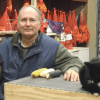 Walter Goldstein: Executive Director/Research Director Mandaamin Institute /Nokomis Gold Seed Company. Walter Goldstein is the Executive Director of the Mandaamin Institute, a non-profit organization dedicated to breeding for a sustainable agriculture. It continues a 22 year old breeding project to develop maize for organic, low input, sustainable farming situations. This includes commercializing hybrids with high methionine, lysine, and protein contents, and further developing such varieties for high nitrogen efficiency. Nitrogen efficiency entails developing varieties that can interact with microbial communities to ensure high plant protein production, possibly even through endophytic N fixation. Present work at the institute includes a team project with USDA-ARS (Ames, Iowa), Cornell University, New Mexico State University, Ohio State University, Iowa State University, Practical Farmers of Iowa, and several private breeding companies. The intent of this project is to develop high quality maize for organic, low-input farmers. The role of the Mandaamin Institute is particularly concerned with protein quality and N efficiency. Effects of the breeding program on grain quality is being researched together with the USDA-ARS North Central Soil Conservation Research Lab (Morris, MN). Dr. Goldstein has alsp started the Nokomis Gold Seed Company, LLC, and a Quality Corn Club to market Mandaamin Institute’s seed varieties. He received all three of his degrees (BS in Botany and M.S and PhDs in Agronomy) from Washington State University. From 1986 to 2011 he led research and educational programs at Michael Fields Agricultural Institute (MFAI), a non-profit, public education organization for sustainable agriculture. Efforts included research work on soils and crops, an active corn breeding program, on farm-research with organic farmers, teaching farmers and interns, and advisory work for farmers in the former East Block countries.
Walter Goldstein: Executive Director/Research Director Mandaamin Institute /Nokomis Gold Seed Company. Walter Goldstein is the Executive Director of the Mandaamin Institute, a non-profit organization dedicated to breeding for a sustainable agriculture. It continues a 22 year old breeding project to develop maize for organic, low input, sustainable farming situations. This includes commercializing hybrids with high methionine, lysine, and protein contents, and further developing such varieties for high nitrogen efficiency. Nitrogen efficiency entails developing varieties that can interact with microbial communities to ensure high plant protein production, possibly even through endophytic N fixation. Present work at the institute includes a team project with USDA-ARS (Ames, Iowa), Cornell University, New Mexico State University, Ohio State University, Iowa State University, Practical Farmers of Iowa, and several private breeding companies. The intent of this project is to develop high quality maize for organic, low-input farmers. The role of the Mandaamin Institute is particularly concerned with protein quality and N efficiency. Effects of the breeding program on grain quality is being researched together with the USDA-ARS North Central Soil Conservation Research Lab (Morris, MN). Dr. Goldstein has alsp started the Nokomis Gold Seed Company, LLC, and a Quality Corn Club to market Mandaamin Institute’s seed varieties. He received all three of his degrees (BS in Botany and M.S and PhDs in Agronomy) from Washington State University. From 1986 to 2011 he led research and educational programs at Michael Fields Agricultural Institute (MFAI), a non-profit, public education organization for sustainable agriculture. Efforts included research work on soils and crops, an active corn breeding program, on farm-research with organic farmers, teaching farmers and interns, and advisory work for farmers in the former East Block countries.
Farmer Collaborators
Illinois: Jack Erisman, Pana, IL; Harold Wilken, Danforth, IL; Joel Gruver, Western Illinois University; Marti Gray, Watseka , IL; Will Glazik, Paxton, IL; Steve Buxton, Sullivan, IL
Indiana: Andy Ambriole, Roanoke, IN
Iowa: Jeff Klinge
Wisconsin: Moses Beiler, Donald Dahnert, Mark Zinniker, Graham Adsit
Graduate Students
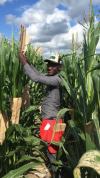 Christopher Mujjabi, University of Illinois, Crop Sciences. Christopher Mujjabi is a Ugandan graduate student pursing a Master’s degree. He is a research assistant in a corn breeding program working under the supervision of Dr. Martin Bohn. Chris completed his Bachelor’s degree in Agricultural Sciences and Natural Resource Management from EARTH University in Limon, Costa Rica. His undergraduate thesis was focused on the production of bio-degradable composites from pineapple leaf fibers as a sustainable alternative for the management of pineapple field residues. He was also a student-intern in the Turfgrass breeding and genetics program at North Carolina State University where he worked with SSR markers for molecular selection of gray leaf spot tolerance traits in St Augustine grass. Chris has an International Baccalaureate (IB) diploma which he completed from Sussex Coast College, Hastings in the United Kingdom. His current research focuses on the genetic and agronomic characterization of corn cultivars tested under organic management conditions. Chris likes playing guitar and listening to Latin music for leisure.
Christopher Mujjabi, University of Illinois, Crop Sciences. Christopher Mujjabi is a Ugandan graduate student pursing a Master’s degree. He is a research assistant in a corn breeding program working under the supervision of Dr. Martin Bohn. Chris completed his Bachelor’s degree in Agricultural Sciences and Natural Resource Management from EARTH University in Limon, Costa Rica. His undergraduate thesis was focused on the production of bio-degradable composites from pineapple leaf fibers as a sustainable alternative for the management of pineapple field residues. He was also a student-intern in the Turfgrass breeding and genetics program at North Carolina State University where he worked with SSR markers for molecular selection of gray leaf spot tolerance traits in St Augustine grass. Chris has an International Baccalaureate (IB) diploma which he completed from Sussex Coast College, Hastings in the United Kingdom. His current research focuses on the genetic and agronomic characterization of corn cultivars tested under organic management conditions. Chris likes playing guitar and listening to Latin music for leisure.
 Binod Ghimire, University of Illinois, Natural Resources & Environmental Sciences. Binod is from Nepal. He is a first year Ph.D. student in the Department of natural Resources and Environmental Sciences in University of Illinois at Urbana-Champaign under the advice of Dr. Wander. He received his Bachelor’s degree in Agricultural Science from the Institute of Agriculture and Animal Science from Tribhuvan University (Nepal) in 2011. He received his MS (non-thesis) degree in Horticulture Science from the Hebrew University of Jerusalem, Israel in 2015. He also pursued a second MS degree in Agricultural Biology from New Mexico State University, New Mexico and graduated in 2017. Binod’s thesis focused on understanding the feasibility of cover crops in a limited irrigated winter wheat-summer fallow system; for this he studied soil water use efficiency and soil organic matter dynamics in the traditional winter wheat-summer fallow rotation. For his doctoral research he seeks to gain a better understanding of the effect of soil-microbe-plant interaction in different varieties of corn grown under organic production and under contrasting management practices. In this context, he is evaluating soil health status and plant health. He is particularly interested in studying the functional group diversity and abundance of plant growth promoting rhizoassociates, and management factors that contribute
Binod Ghimire, University of Illinois, Natural Resources & Environmental Sciences. Binod is from Nepal. He is a first year Ph.D. student in the Department of natural Resources and Environmental Sciences in University of Illinois at Urbana-Champaign under the advice of Dr. Wander. He received his Bachelor’s degree in Agricultural Science from the Institute of Agriculture and Animal Science from Tribhuvan University (Nepal) in 2011. He received his MS (non-thesis) degree in Horticulture Science from the Hebrew University of Jerusalem, Israel in 2015. He also pursued a second MS degree in Agricultural Biology from New Mexico State University, New Mexico and graduated in 2017. Binod’s thesis focused on understanding the feasibility of cover crops in a limited irrigated winter wheat-summer fallow system; for this he studied soil water use efficiency and soil organic matter dynamics in the traditional winter wheat-summer fallow rotation. For his doctoral research he seeks to gain a better understanding of the effect of soil-microbe-plant interaction in different varieties of corn grown under organic production and under contrasting management practices. In this context, he is evaluating soil health status and plant health. He is particularly interested in studying the functional group diversity and abundance of plant growth promoting rhizoassociates, and management factors that contribute 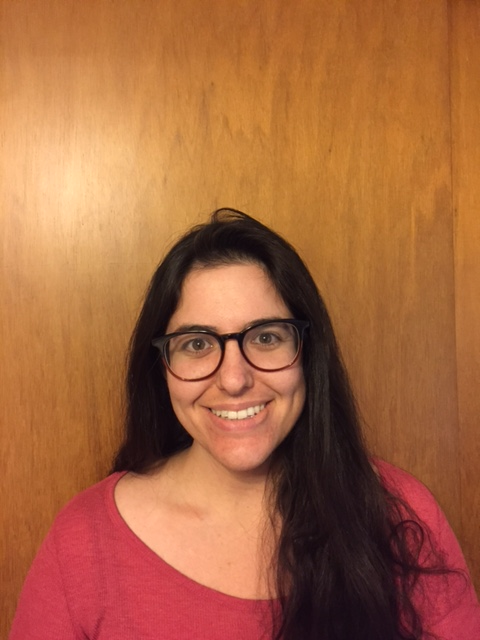 to C and N cycling.
to C and N cycling.
Irene Kaufman, University of Illinois, Natural Resources & Environmental Sciences. Irene Kaufman is a first year PhD student in the Department of Natural Resources and Environmental Science at University of Illinois, Urbana Champaign. Having lived in California and Illinois, two of the largest agricultural states in the US, she has come to believe in the importance of regenerative farming practices in shaping our future. She received her M.S. in Agriculture with a specialization in Dairy Products Technology from California Polytechnic State University in San Luis Obispo in May 2017. Her thesis work focused on byproduct utilization from large scale egg extractions. She is broadly interested in Agroecology with research interests relating to the effects of soil biology on crop quality. In addition to her commitment to scientific research, she is passionate about raising public awareness of sustainable farming and food systems, and now sits on the board of directors for The Land Connection in Champaign.
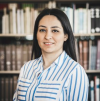 Ece Gülkirpik, University of Illinois, Food Science & Human Nutrition: Ece Gulkirpik is from Istanbul, Turkey. She received her bachelor’s degree in Food Engineering from Istanbul Technical University. As an international student coming from a developing country, she’s aware of the need for a change in the current food system, and she is aiming to combine her engineering background and interest in food chemistry and nutrition to create sustainable food systems to enable the access of safe, nutritious and sufficient food to everyone. Her current projects aim at promoting the processing of organic grains produced locally, expand the access of local farmers to markets, educate them in sustainable agriculture practices and create a sustainable food system by collaborating different parties including companies, farmers, bakers and consumers in Illinois. She wants to take this similar approach to countries where processing can enhance the nutritional value of products, especially for vulnerable populations. In the scope of these projects, she is evaluating the nutritional quality, physical-chemical, and functional characteristics of locally produced, organic grain varieties and investigating the effects of different organic agriculture practices on the micronutrient contents and quality of corn.
Ece Gülkirpik, University of Illinois, Food Science & Human Nutrition: Ece Gulkirpik is from Istanbul, Turkey. She received her bachelor’s degree in Food Engineering from Istanbul Technical University. As an international student coming from a developing country, she’s aware of the need for a change in the current food system, and she is aiming to combine her engineering background and interest in food chemistry and nutrition to create sustainable food systems to enable the access of safe, nutritious and sufficient food to everyone. Her current projects aim at promoting the processing of organic grains produced locally, expand the access of local farmers to markets, educate them in sustainable agriculture practices and create a sustainable food system by collaborating different parties including companies, farmers, bakers and consumers in Illinois. She wants to take this similar approach to countries where processing can enhance the nutritional value of products, especially for vulnerable populations. In the scope of these projects, she is evaluating the nutritional quality, physical-chemical, and functional characteristics of locally produced, organic grain varieties and investigating the effects of different organic agriculture practices on the micronutrient contents and quality of corn.
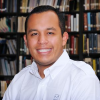 Marco Toc, University of Illinois, Food Science & Human Nutrition: Marco Toc is a first year Ph.D. student in the Department of Food Science and Human Nutrition in University of Illinois at Urbana- Champaign under the advice of Dr. Andrade. He is native from Guatemala. Marco received his bachelor’s degree in food science and Technology from Zamorano University (Honduras) in 2013. His thesis aimed to evaluate the acceptance of children by adding iron monosodium EDTA in milk as an initiative for the School Lunch Program in Honduras. In 2017, Marco completed his master’s degree in nutrition and Food Science with a concentration of Food & Bioprocessing Systems at Louisiana State University. His research aimed to optimize the extraction of procyanidin B-2 rich extract from unfermented cocoa using response surface methodology and evaluate the interaction of procyanidin B-2 rich cocoa extract with collagenase and elastase as biomarkers of skin aging. Currently, he is conducting research aimed at determining the nutritional value of complementary food samples obtained from Sub-Saharan Africa. He also co-worked with the Soybean Innovation Lab at the University of Illinois to develop a Soy for Human Nutrition Fact Sheet.
Marco Toc, University of Illinois, Food Science & Human Nutrition: Marco Toc is a first year Ph.D. student in the Department of Food Science and Human Nutrition in University of Illinois at Urbana- Champaign under the advice of Dr. Andrade. He is native from Guatemala. Marco received his bachelor’s degree in food science and Technology from Zamorano University (Honduras) in 2013. His thesis aimed to evaluate the acceptance of children by adding iron monosodium EDTA in milk as an initiative for the School Lunch Program in Honduras. In 2017, Marco completed his master’s degree in nutrition and Food Science with a concentration of Food & Bioprocessing Systems at Louisiana State University. His research aimed to optimize the extraction of procyanidin B-2 rich extract from unfermented cocoa using response surface methodology and evaluate the interaction of procyanidin B-2 rich cocoa extract with collagenase and elastase as biomarkers of skin aging. Currently, he is conducting research aimed at determining the nutritional value of complementary food samples obtained from Sub-Saharan Africa. He also co-worked with the Soybean Innovation Lab at the University of Illinois to develop a Soy for Human Nutrition Fact Sheet.
Marco’s interest is to develop a system of interrelated computing devices with sensing technologies that generate and transfer data over the internet and can analyze and provide information in-real-time capable of reducing post-harvest lost in the cereal grain industry.
 Mario Nuñez: Mario Nuñez is a visiting scholar from Honduras. He received his bachelor’s degree from Zamorano University (Honduras) in 2011. Prior to joining the University of Illinois in 2018, he worked as an instructor in the Seed Production module at Zamorano University. In the scope of this project, he is supporting the implementation and data collection from trials in Illinois and Indiana. In the future, Mario is interested in replicating the approach for participatory breeding and testing in Central American countries.
Mario Nuñez: Mario Nuñez is a visiting scholar from Honduras. He received his bachelor’s degree from Zamorano University (Honduras) in 2011. Prior to joining the University of Illinois in 2018, he worked as an instructor in the Seed Production module at Zamorano University. In the scope of this project, he is supporting the implementation and data collection from trials in Illinois and Indiana. In the future, Mario is interested in replicating the approach for participatory breeding and testing in Central American countries.
Advisory Board
Plant Breeding: Dr. Paul Scott, USDA ARS; Dr. Chris Reberg- Horton, North Carolina State University; Dr. Mark Sorrells, Cornell University; Dr. Bill Tracy , University of Wisconsin; Dr. Julie Dawson, University of Wisconsin; Dr. Jim Myers, Oregon State University; Dr. Philipp W. Simon, USDA - ARS, University of Wisconsin
Sharing, intellectual property and networks: Alice Formiga eOrganic, Micaela Colley, Organic Seed Alliance; Claire Luby, University of Wisconsin.
Processing and distribution: Ken Dallmier, Clarkson Grain; Craig Adams, Great River Organic Milling; Dr. Sherry Tanamihardjo, University of Wisconsin
Funding

This project was funded in 2017 by the Organic Research and Extension Initiative grant, part of the USDA National Institute of Food and Agriculture. Grant number 2017-51300-27115

